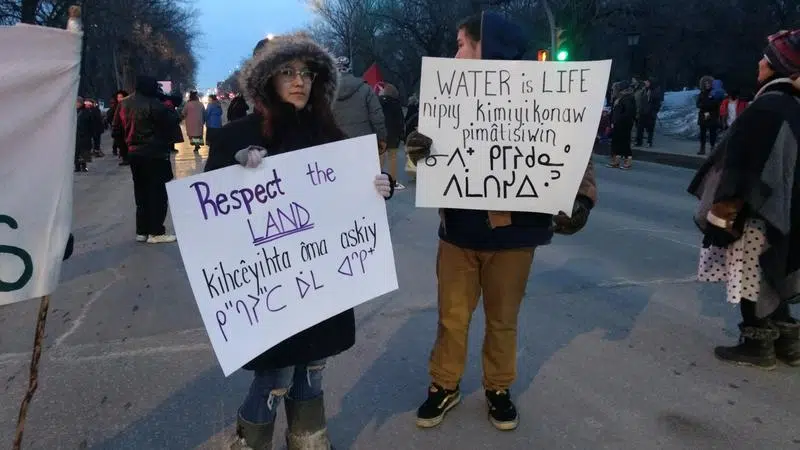
Protests supporting Wet’suwet’en hereditary chiefs against pipeline held on Albert Street
Traffic was blocked for about an hour at several spots along Albert Street on Saturday night, as a protest was held in solidarity with Wet’suwet’en hereditary chiefs in British Columbia who oppose the Coastal GasLink pipeline.
The project has the support of elected councils established under the Indian Act but would run through unceded territory. As opponents block off access to it, RCMP have been enforcing an injunction against the hereditary chiefs.
“It’s about the pipelines but it’s even bigger than that. It’s about human rights. You can’t force a pipeline through a territory of a people that don’t want it,” said organizer Wendy Lynn Lerat earlier in the day.
“If it was going through Regina here and was going to go through an area that was a very well-protected area here in the city, there would be an uproar. It would be stopped right away. But because it’s going through Indigenous territories, they turn a blind eye.”


